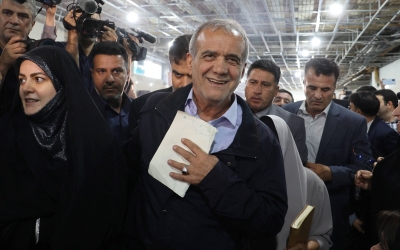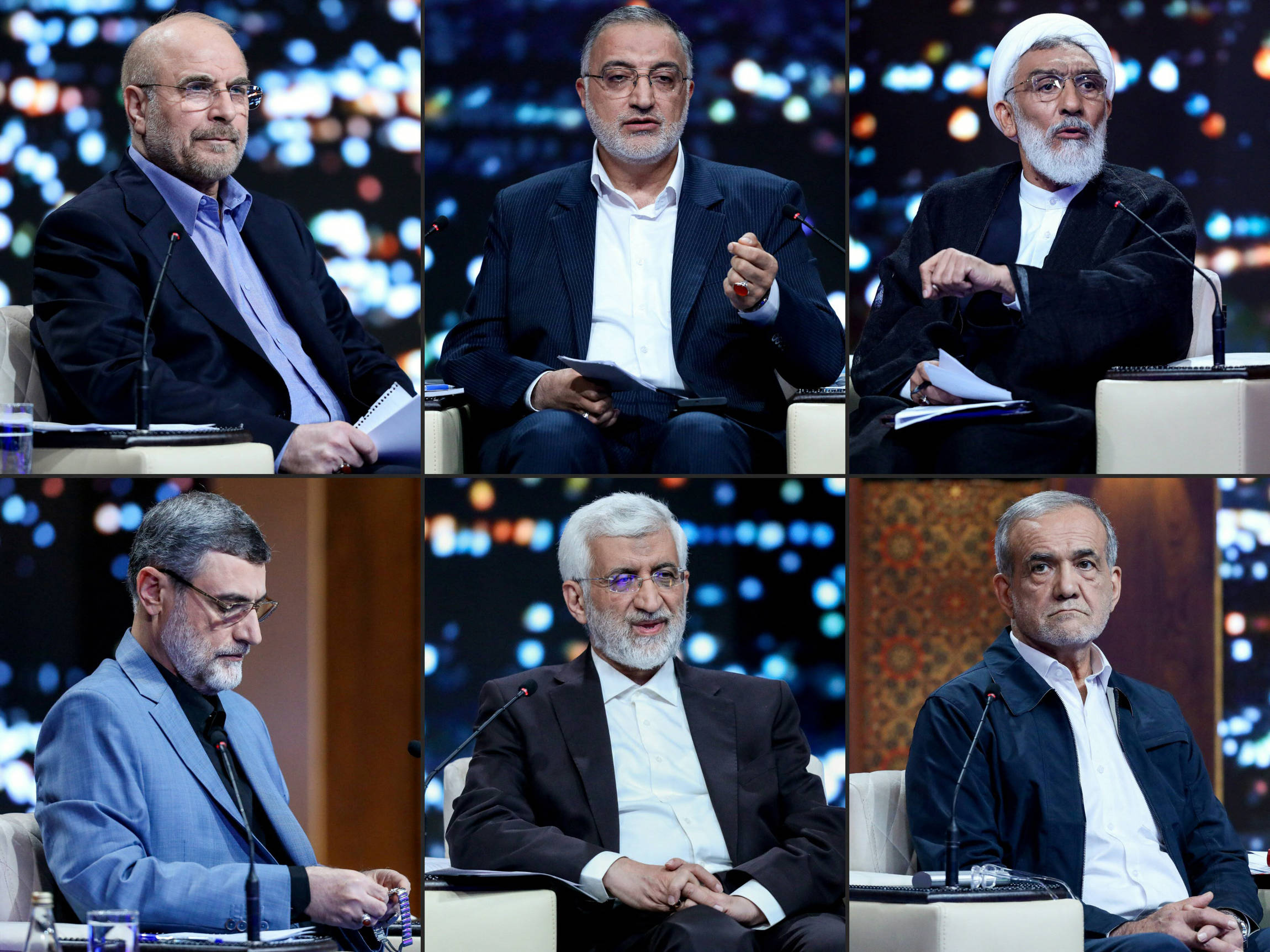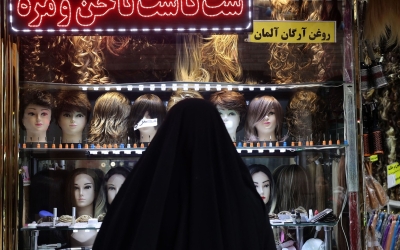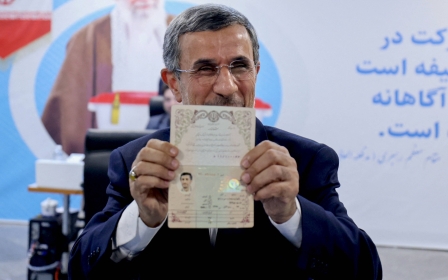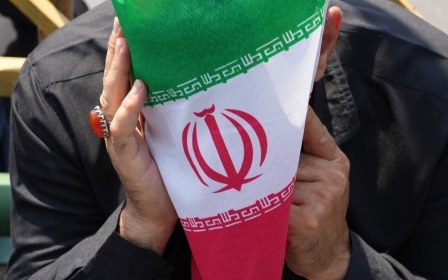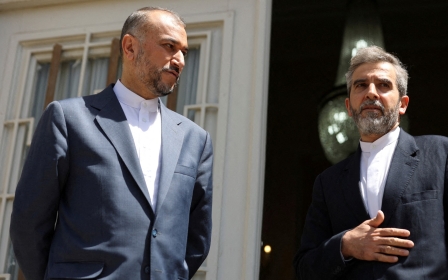Meet the cleric dubbed ‘the phenomenon’ of Iran's presidential race
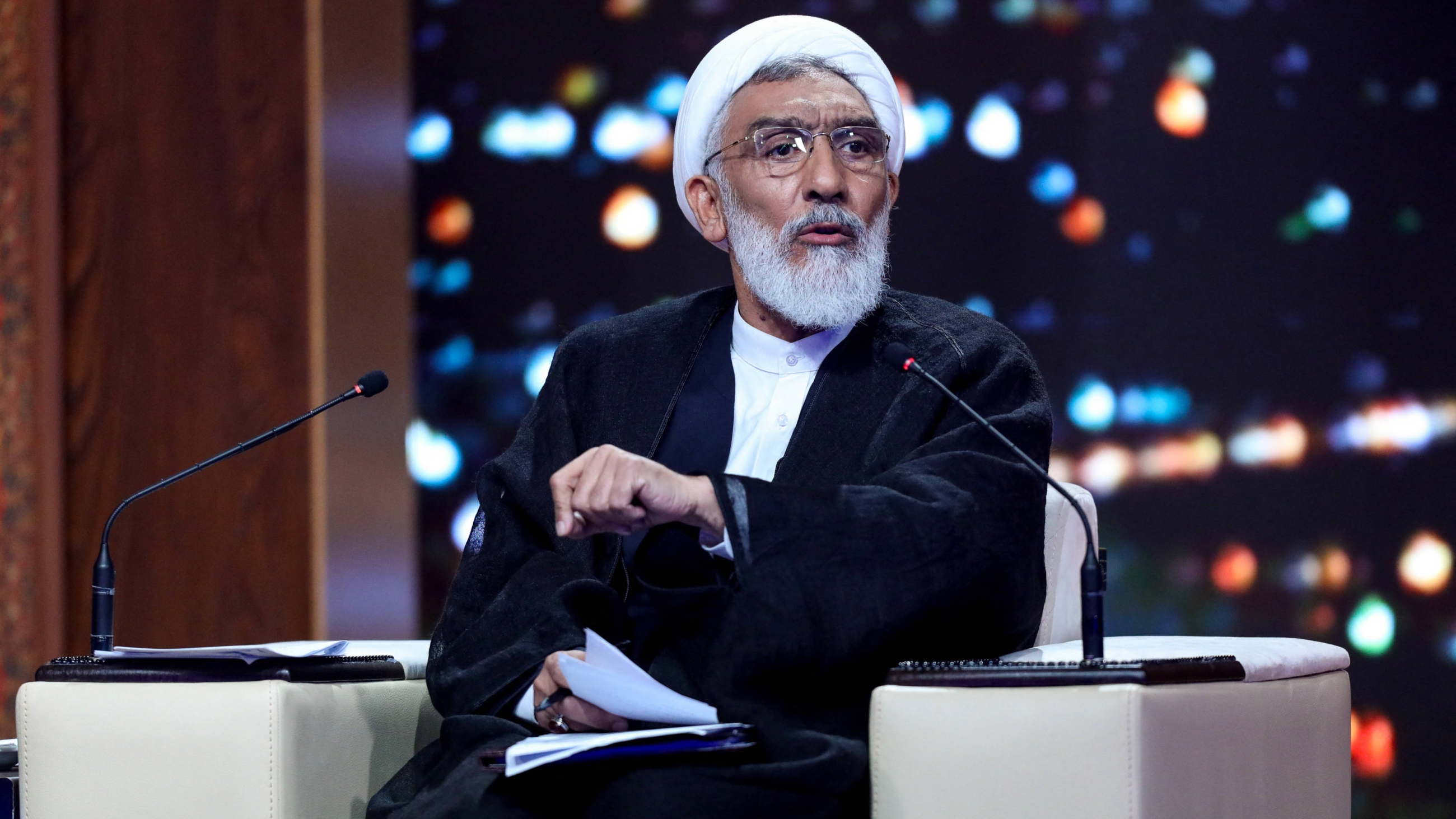
Mostafa Pourmohammadi, a conservative presidential candidate in Iran, has surprised observers and the public with his reformist ideas and angered principlists.
While the sole candidate for the reformists is Masoud Pezeshkian, some sarcastically argue that Pourmohammadi is more reformist than Pezeshkian himself, who frequently references the Quran in his speeches, making him appear more clerical.
In recent days, Pourmohammadi has shocked conservatives with his public appearances, vowing to end the morality police, criticising the blocking of social media networks and insisting on the necessity of negotiations with the US.
In a new move on the political scene, he appeared on state TV with his daughter, who holds a doctorate in economics and serves as his senior adviser.
He asked her to speak about the pain of US sanctions and the need to lift them through talks.
New MEE newsletter: Jerusalem Dispatch
Sign up to get the latest insights and analysis on Israel-Palestine, alongside Turkey Unpacked and other MEE newsletters
Who is Pourmohammadi?
Pourmohammadi, 64, is a veteran security and judicial figure. He began his career as a prosecutor at the age of 20 and, in the 1980s, served as head of foreign intelligence at the Ministry of Intelligence until 1996.
Pourmohammadi also served as deputy minister of intelligence during the first two years of reformist Mohammad Khatami’s administration, which spanned from 1997 to 2005.
Under former principlist President Mahmoud Ahmadinejad, he held the role of interior minister, another security-related role. During moderate President Hassan Rouhani’s first term, he was the justice minister.
In 2020, Supreme Leader Ayatollah Ali Khamenei appointed Pourmohammadi head of the Islamic Revolution Documents Centre, a prominent state-run history research institute.
Despite being well-known among politicians, Pourmohammadi has never been a high-profile figure.
In recent years, Pourmohammadi has sought to enhance his political image by increasing his involvement as the secretary of the Combatant Clergy Association and the Unity Council of Revolutionary Forces. The latter of the two conservative groups acts as a base for traditional conservative clerics.
Pourmohammadi, however, is seen as a symbol of moderate conservatives, a stance reflected in his speeches and positions.
Even when conservatives mostly raged against moderate politician and former parliamentary speaker Ali Larijani, there were whispers that the Combatant Clergy Association would support him in the presidential race. However, Larijani was later barred from running in the elections.
'The phenomenon'
With Larijani out of the race, Pourmohammadi, the only cleric running, now sees a greater chance for himself.
A reformist daily editor told Middle East Eye: "Pourmohammadi apparently believes he can secure the traditional and moderate conservative vote, while also appealing to independents and moderates who previously supported Larijani."
He added that Pourmohammadi is currently positioning himself against two key conservative candidates, Saeed Jalili and Mohammad Baqer Qalibaf, rather than reformists.
'We are not worried, but it is clear that Pourmohammadi is attracting votes from the reformists' base and the middle class'
- Adviser to Masoud Pezeshkian
The editor noted that Pourmohammadi's reported involvement in the 1988 mass extrajudicial executions in Iran's prisons would be a significant obstacle to his achieving major success.
Pourmohammadi previously stated that those who were executed were “criminals and terrorists” who had collaborated with the Iranian exile resistance group Mujahedin-e Khalq, now known as the National Council of Resistance of Iran (NCRI).
Meanwhile, some reformists worry that Pourmohammadi's campaign could lead to a vote split between him and Pezeshkian.
A campaign adviser to Pezeshkian told MEE: "We are not worried, but it is clear that Pourmohammadi is attracting votes from the reformists' base and the middle class.
"Pourmohammadi has revived himself as a politician and would have great days ahead as he has displayed his unique ability in speaking and his liberal worldview," a former conservative official in the establishment commented.
He added that if Pezeshkian wins the race, Pourmohammadi will likely be appointed as interior minister or intelligence minister, as reformists are starting to appreciate his positions.
Pourmohammadi is currently being called "the phenomenon" of the elections and presidential debates. Initially, no one took him seriously, but now the story is different.
The first debate
The first televised debate among the six candidates in Iran's 14th presidential election was held on Monday evening and lasted four and a half hours.
Sanctions, incompetent managers in the Islamic Republic, their role in economic issues and the waste of resources were key points of contention among the candidates.
Alireza Zakani, the mayor of Tehran and one of the ultraconservative candidates, said during the debate, "The economic problem of Iran is not the oppressive US sanctions."
He stressed the need to offset the sanctions and criticised linking the resolution of economic woes, such as inflation and sanctions, to talks with the US, saying, "Sanctions should be neutralised within the country and diplomacy should change its basis and foundation."
Pezeshkian, a parliament member and the reformist candidate, responded by calling the sanctions a "disaster".
"They say we bypass the sanctions, [but] there is a lot of embezzlement in this process. We are ranked 15th in the world in terms of corruption."
In another part of his speech, he described the sanctions as an economic war whose victims are the poor.
Qalibaf, the speaker of parliament and another conservative candidate, said in the debate that he would strive to lift the sanctions, particularly those affecting foreign investment.
Pourmohammadi stated: "We are sanctioned, and our entire economy and all economic and commercial relations are locked."
He added: "Some said that sanctions are not a big issue and they are still saying the same. The world has imposed crippling sanctions against us. We are on the blacklist of countries. When all our commercial and financial relations are locked, how can economic activists work?"
Pourmohammadi also slammed the foreign policy of the government of the late Ebrahim Raisi, saying: "They paid the price of [their involvement in] the Ukraine war but made no use of it."
In response, Zakani sai:, "One can give slogans and make beautiful general statements, but problems cannot be solved this way. Mr Pourmohammadi has taken a fundamentally wrong approach."
He also criticised Pezeshkian, saying, "Mr Pezeshkian made general points, tied everything together without any clear outcome, and in the end, said we can't do it. I am surprised how he became a presidential candidate; it astonishes us."
Saeed Jalili also said that economic growth requires "utilising opportunities" and should not depend on attracting foreign investment.
He criticised Rouhani's government for writing a letter to the Expediency Discernment Council, claiming that without the revival of the nuclear agreement with world powers, which would have lifted sanctions, they could not pay government employees' salaries for the next month.
"But this [nuclear] agreement was not reached, and the employees' salaries are still being paid," Jalili said.
After former US President Donald Trump withdrew from the nuclear deal, the Rouhani and Biden administrations were in talks to revive the agreement. However, efforts fell apart when Raisi, a principlist, succeeded Rouhani as president in 2021.
On Wednesday, Pourmohammadi criticised the opponents of the nuclear agreement in Iran, particularly the ultraconservatives who played a significant role in its failure.
“The deal was [signed] to decrease the pressure of sanctions, but they scrapped it," he said. "All the officials of the country accepted the JCPOA, but in practice, it was disrupted."
Middle East Eye delivers independent and unrivalled coverage and analysis of the Middle East, North Africa and beyond. To learn more about republishing this content and the associated fees, please fill out this form. More about MEE can be found here.


